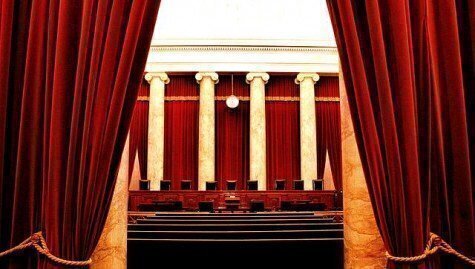On Monday, the Supreme Court in a 6-2 decision said that a lower court needs to reconsider a potentially major case about the right to sue, or standing, under the Constitution.
 The Spokeo v. Robins case has lurked under the media radar as one of the biggest decisions of the Supreme Court’s current term. But now, the Ninth Circuit court will need to reconsider the ability of an Internet people search engine to be sued about incorrect data it published about a Virginia man.
The Spokeo v. Robins case has lurked under the media radar as one of the biggest decisions of the Supreme Court’s current term. But now, the Ninth Circuit court will need to reconsider the ability of an Internet people search engine to be sued about incorrect data it published about a Virginia man.
Link: Read The Opinion
The man in question, Thomas Robins, sued Spokeo because Spokeo published information about him, gathered from public sources, that overstated Robins’ education, employment experience, and financial situation, and said he was married (when he wasn’t).
Robins claims that Spokeo functions online as a consumer reporting agency, and the mistakes on his profile ran afoul of a law passed by Congress called the Fair Credit Reporting Act (or FCRA). The law requires agencies to “follow reasonable procedures to assure maximum possible accuracy of” information they publish. In a class-action suit, Robins is seeking damages for himself and others entitled under the law, claiming the false data hurt his chances of getting a job, insurance and credit.
The debate in the lower courts was over Robins’ need to prove he was tangibly harmed by Spokeo’s actions. A federal appeals court ruled in favor of Robins before the case was sent to the U.S. Supreme Court for review. The Ninth Circuit Appeals Court said that Robins didn’t need to prove he was harmed because Spokeo violated the FCRA law, which allowed him to pursue compensation under the statute.
Spokeo and its supporters believe that the effect of a law passed by Congress allowing an alleged lawsuit victim to pursue damages with proof of harm violates an important constitutional precedent. The precedent is called Article III standing.
However, on Monday, six Supreme Court Justices said the Ninth Circuit needs to look at the case again. Justice Samuel Alito, writing for the majority, said the lower courts didn't fully consider an analysis to find an injury suffered was "concrete" in full legal terms. "Because the Ninth Circuit failed to consider both aspects of the injury-in-fact requirement, its Article III standing analysis was incomplete," Alito said.
Article III standing requires that concrete harm needs to be proven before a federal court will consider a case in full. Spokeo’s attorneys argue that a law passed by Congress, such as the FCRA, can’t require a company to pay penalties without proof that its acts actually harmed someone. In other words, a violation of the statute isn’t enough to get a case into a federal court. Spokeo also warns that a series of massive class action lawsuits could follow a decision in favor of Robins, since the barrier to filing such suits would be substantially lowered.
"This Court takes no position on the correctness of the Ninth Circuit’s ultimate conclusion, but these general principles demonstrate two things: that Congress plainly sought to curb the dissemination of false information by adopting procedures designed to decrease that risk and that Robins cannot satisfy the demands of Article III by alleging a bare procedural violation," Alito concluded.
Robins’ attorneys argued that the law and its punishments provide an important safeguard against a rash of false information appearing on the Internet, and the fear of such punishments will force the data providers to ensure their information is accurate.
Justice Ruth Bader Ginsburg, joined in dissent by Justice Sonia Sotoamayor, didn't agree with the majority's analysis and said she believe the misinformation caused concrete harm to Robins.







